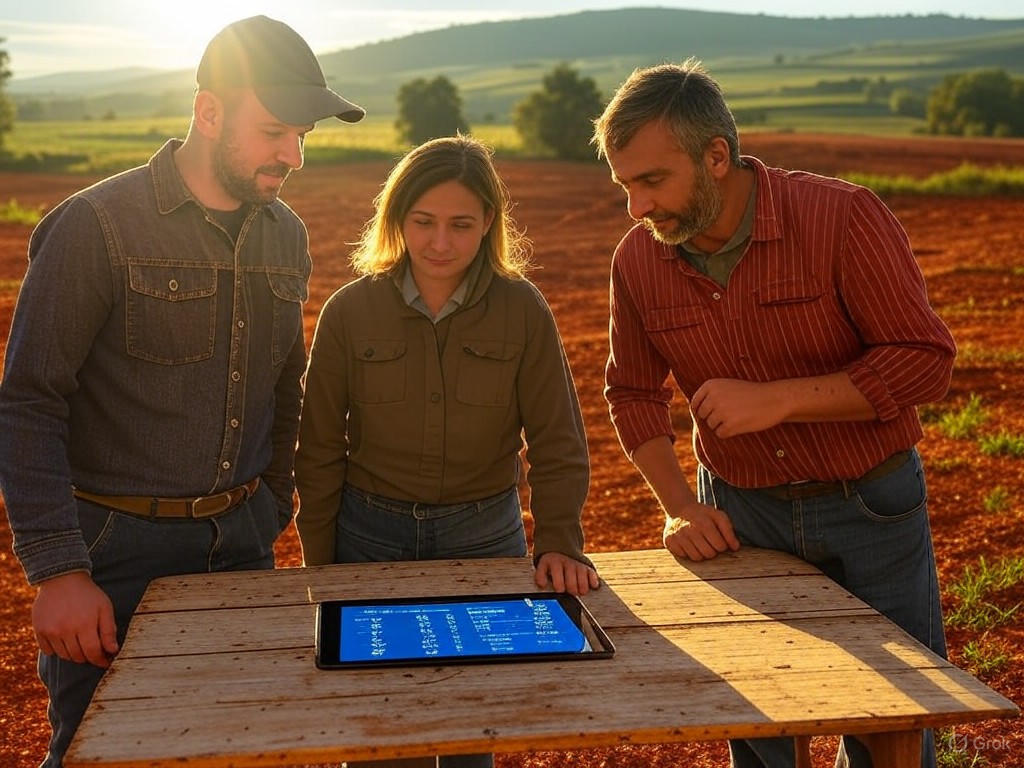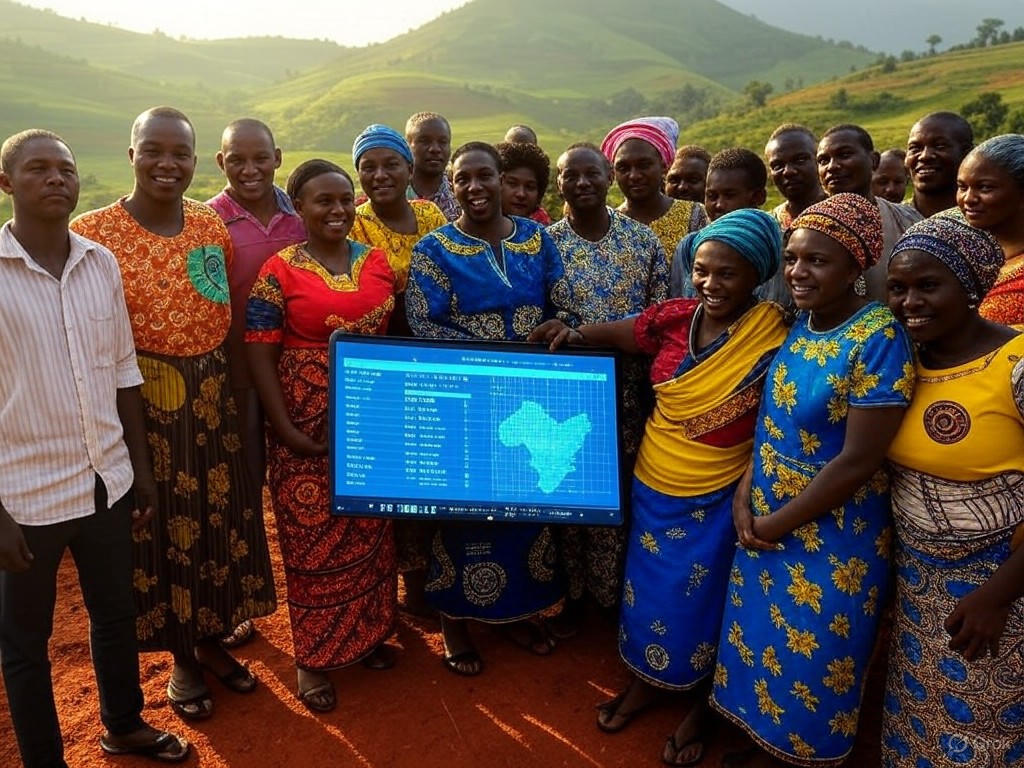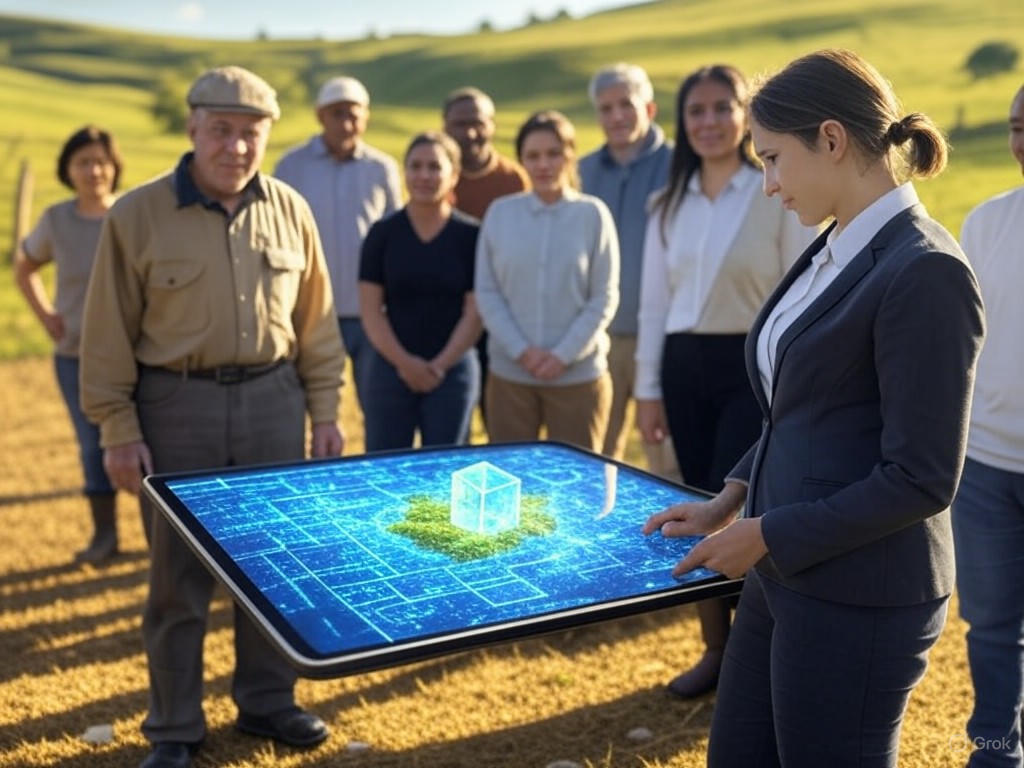Blockchain for Land Rights: Securing Ownership
In an era where bureaucratic red tape can tie up property rights as tightly as a rusty fence, the advent of blockchain technology offers a breath of fresh, market-driven air. Imagine a world where land ownership disputes—those age-old squabbles that have sparked wars and family feuds alike—are resolved not in cluttered courthouses, but through an unyielding digital ledger. This isn't the stuff of utopian dreams; it's a practical innovation that's already taking root globally. As a tool for securing land rights, blockchain doesn't just enhance security; it empowers individuals and communities by minimizing government interference and fostering free-market efficiency. Yet, as with any technological leap, we must weigh its promises against potential pitfalls, all while championing the values that have long underpinned economic stability.
Blockchain, at its core, is a decentralized digital ledger that records transactions in a way that's virtually tamper-proof. For land ownership, this means creating an immutable record of deeds and titles, reducing the risk of fraud and disputes. In regions plagued by corruption or outdated record-keeping, this technology isn't just a gadget; it's a lifeline for everyday folks trying to protect what's theirs. From a center-right perspective, the appeal is clear: it promotes individual responsibility and market-based solutions, allowing property owners to assert their rights without relying on bloated bureaucracies. After all, as history shows, when people can freely trade and secure their assets, economies flourish—think of the American frontier, where clear titles fueled westward expansion.

A visual representation of Georgia's blockchain-based land registry system, showcasing how digital ledgers streamline property transactions in a once-paper-heavy process.
To understand blockchain's role in securing land rights, let's delve into its mechanics. Unlike traditional systems, where a central authority maintains records that can be lost, altered, or corrupted, blockchain distributes data across a network of computers. Each transaction—say, a land sale—is encrypted and linked in a chain, making alterations nearly impossible without consensus from the network. This transparency not only bolsters security but also cuts costs, as intermediaries like lawyers and notaries become less essential. For developing nations, where land rights are often murky, this means empowering local communities to manage their own records. Take, for instance, the economic boost in countries adopting such systems: by clarifying ownership, blockchain encourages investment and development, aligning with free-market principles that reward initiative over regulation.
Of course, this isn't without challenges. Critics might point to the energy demands of blockchain networks or the learning curve for users in remote areas. Yet, these are hurdles that innovation can overcome, much like how the internet evolved from a clunky novelty to a global necessity. From a pragmatic standpoint, the benefits far outweigh the drawbacks, especially when we consider how it upholds traditional values of property rights—a cornerstone of limited government and personal liberty.
Evidence of blockchain's transformative impact is mounting worldwide. In the Republic of Georgia, for example, the government partnered with private innovators to digitize land registries, reducing processing times from weeks to minutes and slashing fraud rates. This initiative, launched in 2016, has processed over 1.5 million records, demonstrating how public-private collaboration can enhance efficiency without expanding state control The Wall Street Journal on Georgia's blockchain land registry. Similarly, in Sweden, the Lantmäteriet agency has piloted blockchain for real estate, allowing for seamless, secure transfers that respect individual ownership while minimizing administrative overhead IEEE Spectrum on blockchain in real estate. These examples underscore a key insight: when technology empowers individuals to handle their affairs, communities thrive without the need for heavy-handed intervention.
Further afield, in sub-Saharan Africa, blockchain is tackling land rights in ways that echo the self-reliance of early American settlers. Projects in Ghana and Rwanda are using blockchain to register communal lands, giving farmers and villagers digital proof of ownership that withstands disputes or political upheaval. A study by the World Bank highlights how such systems can reduce poverty by enabling landowners to use their property as collateral for loans, spurring economic growth from the ground up World Bank report on blockchain and land rights. As I see it, this isn't about imposing new ideologies; it's about applying time-tested principles of free enterprise to modern problems. In a continent where corrupt officials have long exploited ambiguous titles, blockchain offers a market-friendly fix that puts power back in the hands of the people.

Farmers in Rwanda reviewing their blockchain-secured land records on a mobile device, illustrating how technology bridges traditional ownership with digital security.
Yet, for all its merits, blockchain's expansion into land ownership isn't immune to policy missteps. Governments, tempted by the allure of control, might seek to overregulate this space, imposing taxes or mandates that stifle innovation. Here, a center-right approach advocates for light-touch policies that encourage competition and private investment, much like the deregulation that fueled America's tech boom. As CoinDesk, a leading blockchain industry blog, notes, excessive intervention could deter adoption, turning a promising tool into another layer of red tape. Instead, policymakers should focus on fostering education and infrastructure, ensuring that blockchain's benefits reach those who need them most—without creating dependency on state programs.
In analyzing the broader implications, it's worth noting the role of security in this equation. Blockchain's cryptographic features make it a fortress for land records, protecting against cyber threats that plague centralized databases. This isn't just about technology; it's about preserving the sanctity of ownership, a value as old as civilization itself. By reducing fraud and disputes, blockchain could save billions in legal costs annually, freeing up resources for more productive uses Forbes on blockchain security in property. From an economic standpoint, this efficiency translates to stronger markets, where clear titles encourage entrepreneurship and investment.
As we conclude, the story of blockchain in land ownership is one of pragmatic progress—a testament to how free-market innovations can empower communities without the baggage of excessive government involvement. It's not a panacea, but in securing land rights globally, it offers a path toward greater individual agency and economic resilience. In the spirit of those who built nations on sweat and soil, let's embrace this technology not as a disruptor, but as a reliable ally in upholding traditional values. After all, in a world full of uncertainties, a secure deed is worth its weight in digital gold.

